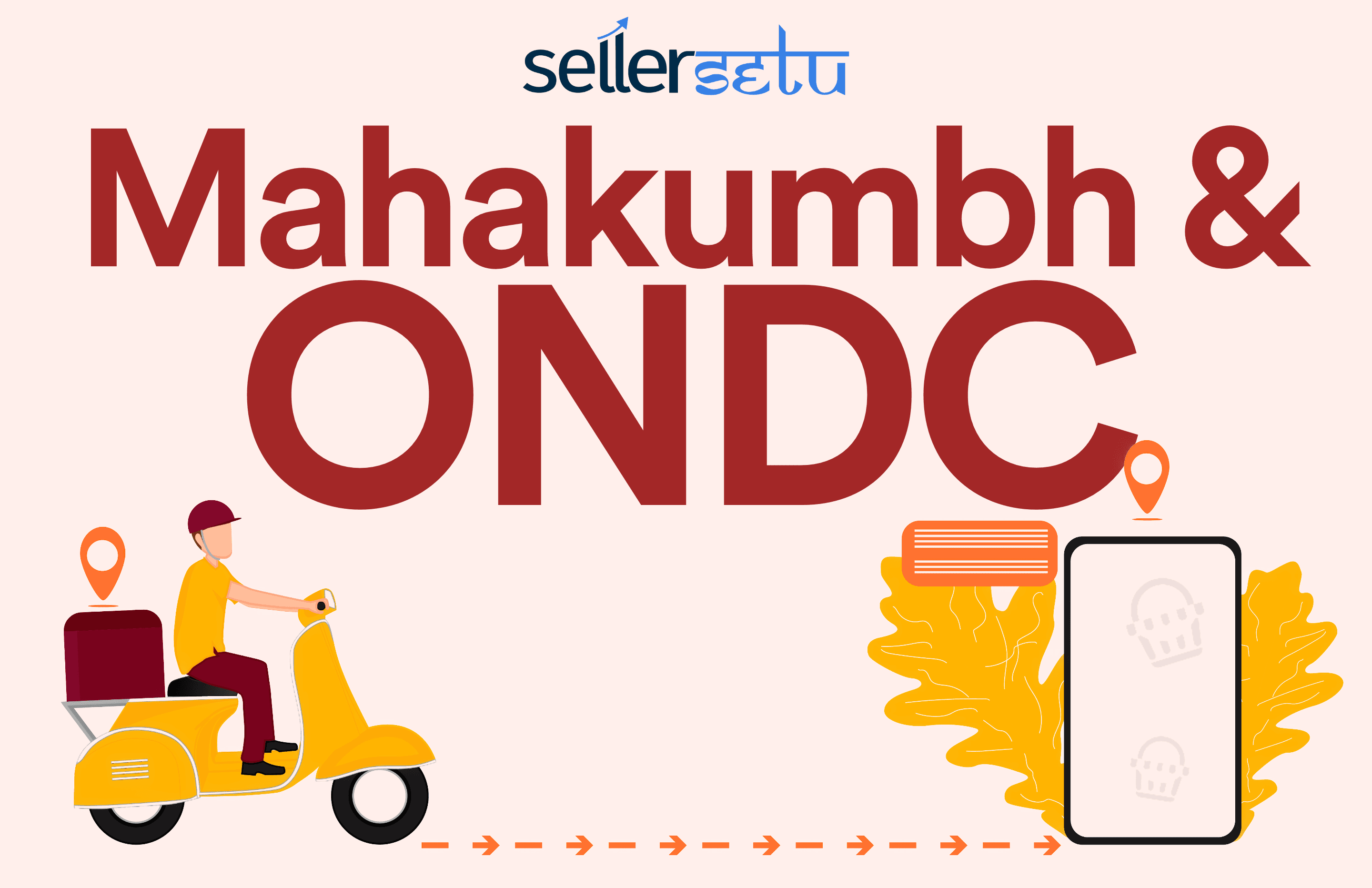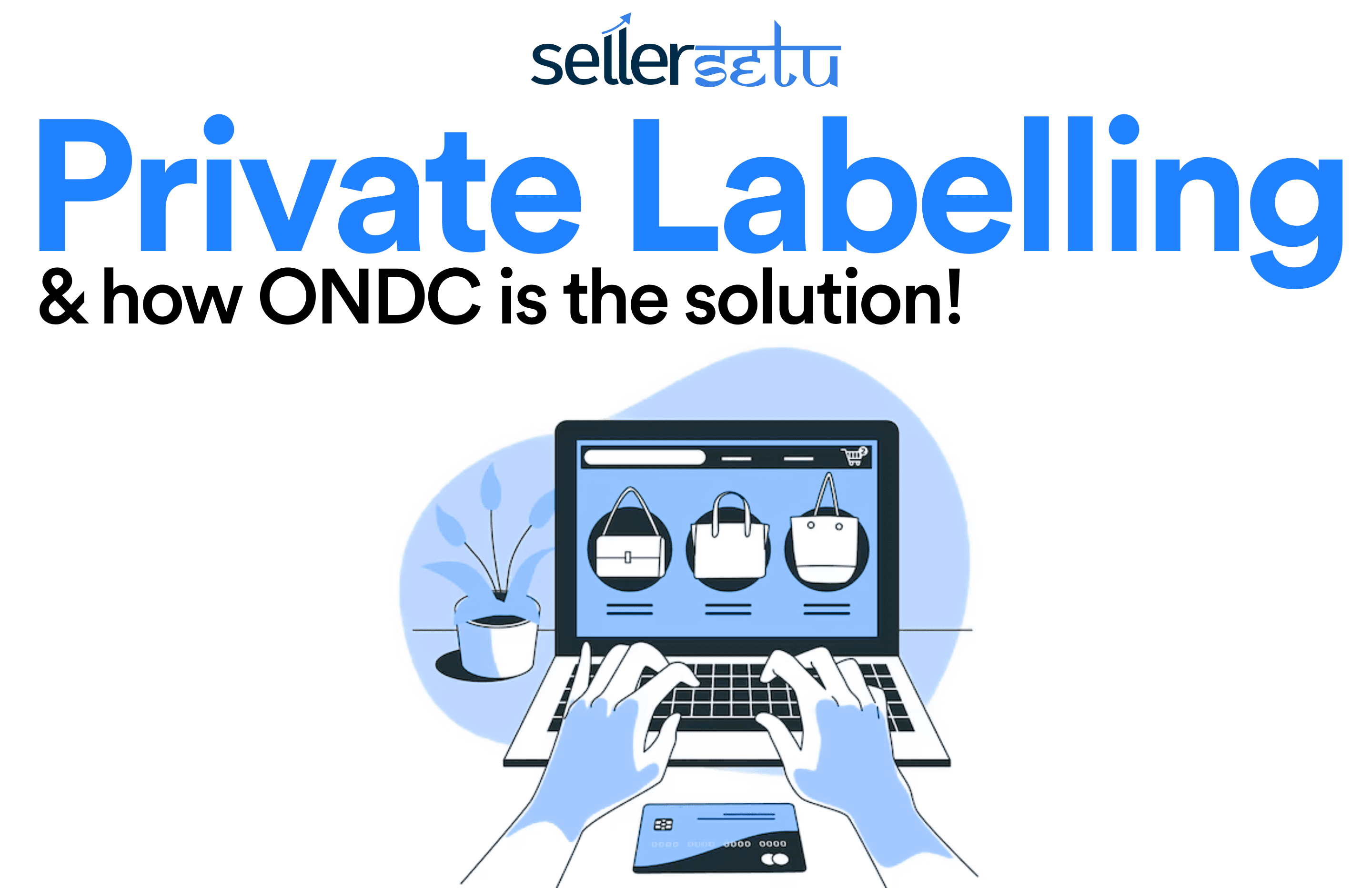

Author: Pranav Deshpande
Read Time: 5-7 mins
Feb 14, 2025
The "Open Secret" of Private Labelling
The "Open Secret" of Private Labelling
The "Open Secret" of Private Labelling
Author: Pranav Deshpande
Read Time: 5-7 mins
Feb 14, 2025


In today’s digital age in India, platforms like Amazon, Flipkart, Zomato, Swiggy, Blinkit, and Zepto have become an integral part of our daily lives as disposable income has increased for the middle class. From ordering groceries to buying gadgets, these apps and platforms offer us never-seen-before convenience at our fingertips. Quick-commerce has enabled us to get not just groceries, but even electrical appliances at our doorstep within just a few minutes.
However, behind this convenience lies an often-overlooked practice: private labeling.
This strategy, while profitable for platforms, raises many ethical concerns like the misuse of user data, unfair competition, and potential violations of FDI policies.
What is Private Labeling?
Private labeling is when e-commerce or delivery platforms use internally collected data to create and sell their own branded products. For instance, if a particular type of protein powder from a small business is selling well on Amazon, the platform can use this data to launch its own version—often at a lower price—under labels like AmazonBasics or Solimo.
In today’s digital age in India, platforms like Amazon, Flipkart, Zomato, Swiggy, Blinkit, and Zepto have become an integral part of our daily lives as disposable income has increased for the middle class. From ordering groceries to buying gadgets, these apps and platforms offer us never-seen-before convenience at our fingertips. Quick-commerce has enabled us to get not just groceries, but even electrical appliances at our doorstep within just a few minutes.
However, behind this convenience lies an often-overlooked practice: private labeling.
This strategy, while profitable for platforms, raises many ethical concerns like the misuse of user data, unfair competition, and potential violations of FDI policies.
What is Private Labeling?
Private labeling is when e-commerce or delivery platforms use internally collected data to create and sell their own branded products. For instance, if a particular type of protein powder from a small business is selling well on Amazon, the platform can use this data to launch its own version—often at a lower price—under labels like AmazonBasics or Solimo.
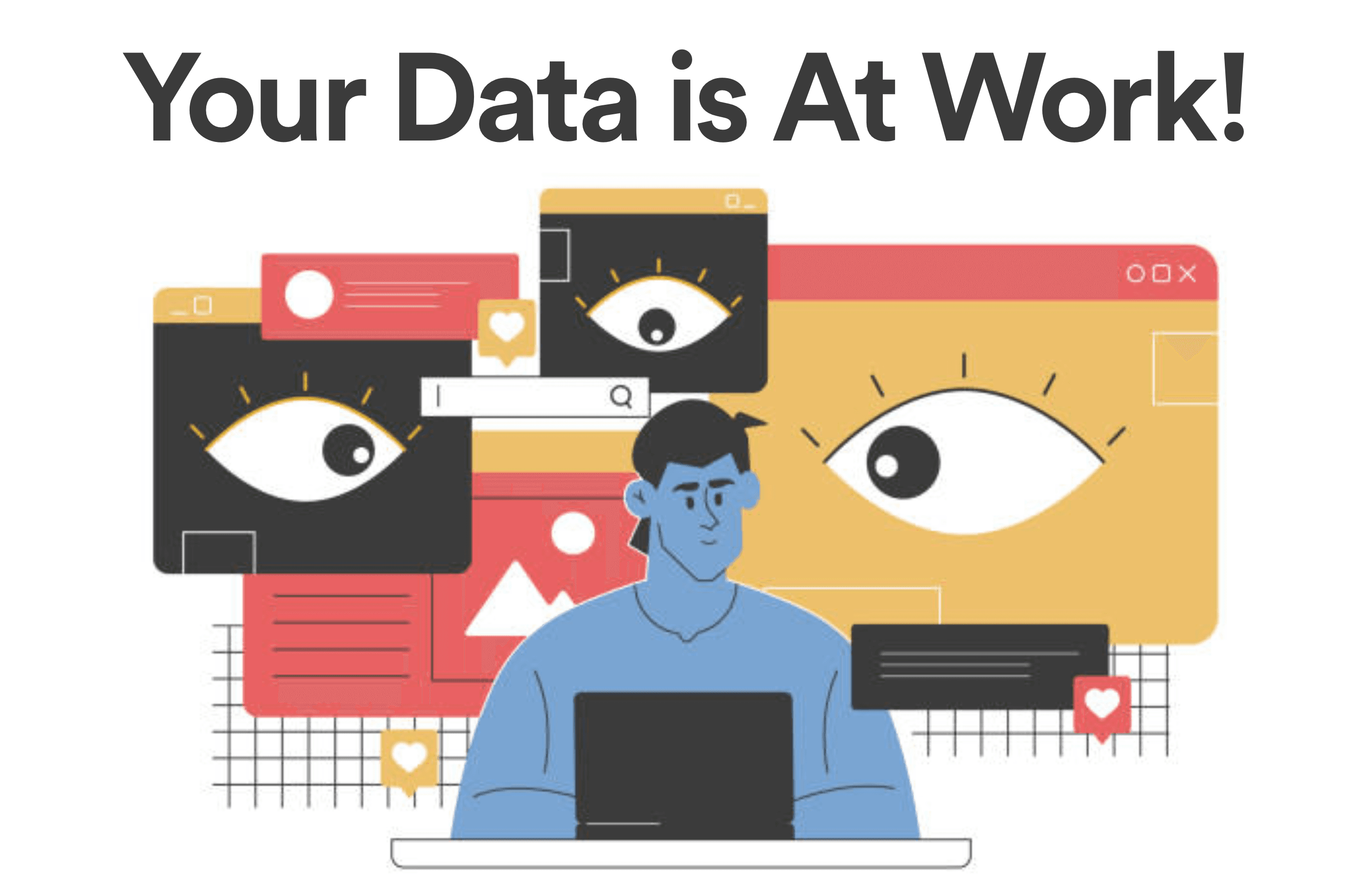

Similarly, food delivery apps like Zomato or Swiggy might notice a high demand for a particular dish from a local restaurant and replicate it via their privately-backed cloud kitchens.
While competition is natural in any marketplace, the issue here lies in the unfair access to data. These platforms have complete visibility into sales trends, customer preferences, and product performance. Independent and small-scale sellers who have decent products and are just starting out, on the other hand, don’t have access to such data and often find themselves outmatched by these private labels.
Why is Private Labeling Unethical?
Data Misuse: Platforms collect user behavior data, including what products they search for, how long they view certain items, and what they ultimately purchase. This data, intended to improve the shopping experience, is instead repurposed to create competing products, mostly without the consent of the users.
Unfair Advantage: Imagine running a successful online store selling organic honey. If a platform notices your growing sales, it can introduce its own organic honey brand under a different name, promote it more prominently, and potentially undercut your business. This especially hits hard on local businesses who are often providing a better-quality product.
Conflict of Interest: These platforms act as both marketplace facilitators and product sellers. This dual role allows them to prioritize their products in search results while pushing independent sellers to the sidelines.
Similarly, food delivery apps like Zomato or Swiggy might notice a high demand for a particular dish from a local restaurant and replicate it via their privately-backed cloud kitchens.
While competition is natural in any marketplace, the issue here lies in the unfair access to data. These platforms have complete visibility into sales trends, customer preferences, and product performance. Independent and small-scale sellers who have decent products and are just starting out, on the other hand, don’t have access to such data and often find themselves outmatched by these private labels.
Why is Private Labeling Unethical?
Data Misuse: Platforms collect user behavior data, including what products they search for, how long they view certain items, and what they ultimately purchase. This data, intended to improve the shopping experience, is instead repurposed to create competing products, mostly without the consent of the users.
Unfair Advantage: Imagine running a successful online store selling organic honey. If a platform notices your growing sales, it can introduce its own organic honey brand under a different name, promote it more prominently, and potentially undercut your business. This especially hits hard on local businesses who are often providing a better-quality product.
Conflict of Interest: These platforms act as both marketplace facilitators and product sellers. This dual role allows them to prioritize their products in search results while pushing independent sellers to the sidelines.


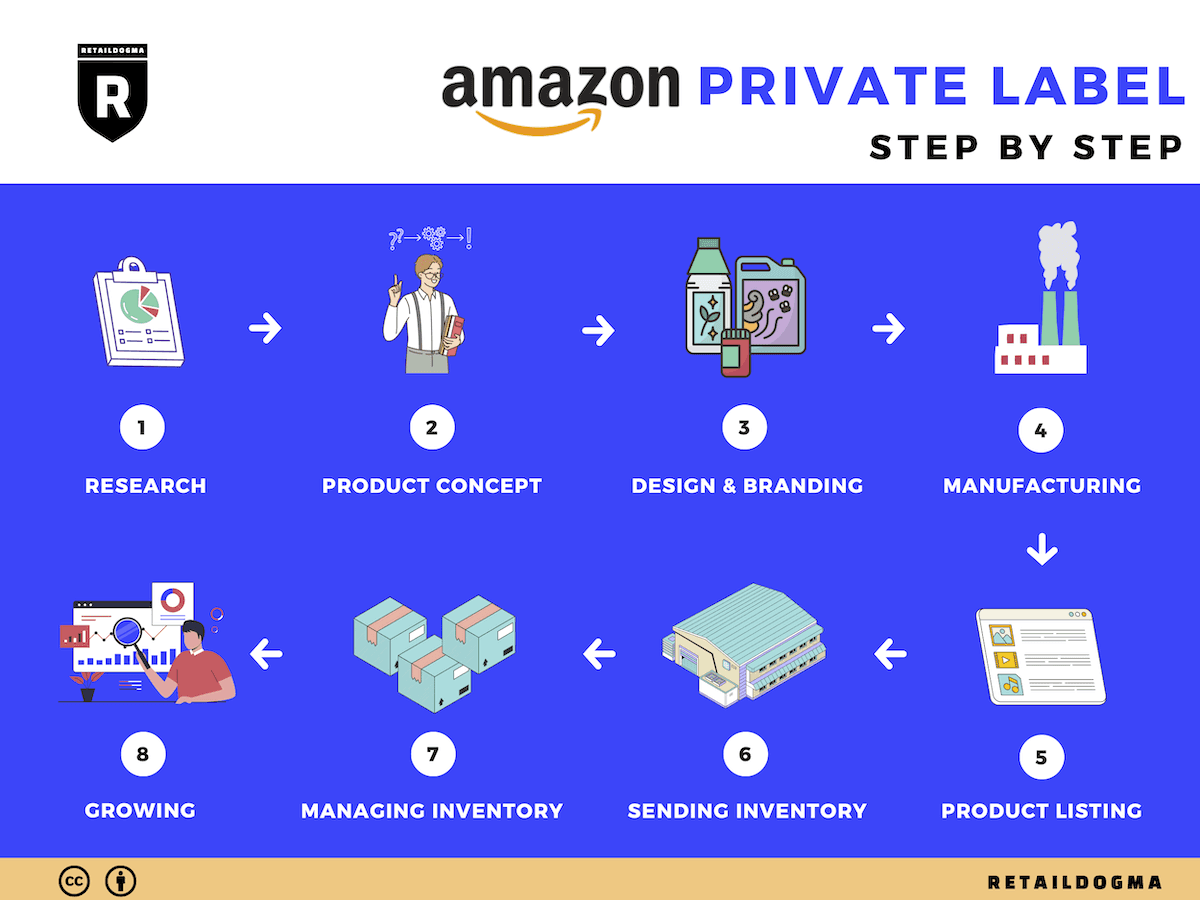

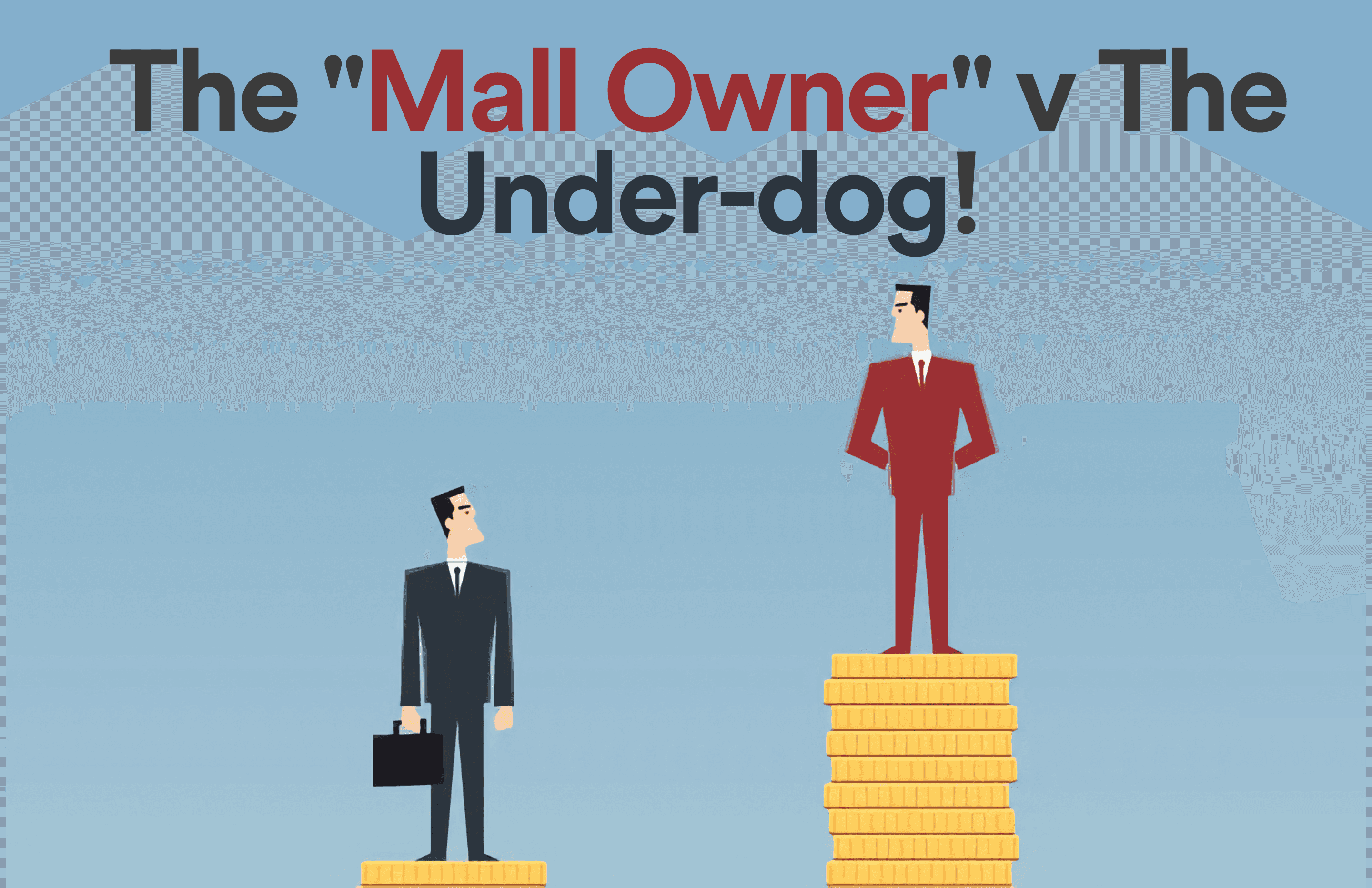



(credit: Retail Dogma)
FDI Policy Violations
India’s FDI policy says that e-commerce platforms operating under the marketplace model cannot influence prices or sell products from companies they control or have a stake in.
However, platforms like Amazon and Flipkart have faced scrutiny for allegedly bypassing these regulations by:
Launching private labels through subsidiaries.
Promoting their in-house brands over independent sellers.
Using data from third-party sellers to replicate popular products.
Imagine a mall owner who rents out shops to different businesses.
(credit: Retail Dogma)
FDI Policy Violations
India’s FDI policy says that e-commerce platforms operating under the marketplace model cannot influence prices or sell products from companies they control or have a stake in.
However, platforms like Amazon and Flipkart have faced scrutiny for allegedly bypassing these regulations by:
Launching private labels through subsidiaries.
Promoting their in-house brands over independent sellers.
Using data from third-party sellers to replicate popular products.
Imagine a mall owner who rents out shops to different businesses.


If the owner sees which shop is doing really well and then opens a similar shop, giving it the best spot in the entire mall and extra promotion, it's unfair. This is like how big platforms use data from other sellers to create and promote their own brands, which goes against fair competition rules.
ONDC: A Fairer Alternative
ONDC, is a government-backed initiative, which aims to level the playing field for all sellers. Unlike closed platforms, ONDC operates as an open network where buyers, sellers, and delivery services can connect without platform-specific restrictions.
Imagine if this mall from the previous example joined ONDC. Now, instead of the mall owner having secret access to which stalls are popular and copying their products, the data is shared fairly with all businesses.
Data Decentralization: The owner can’t spy on sales data to copy top-performing stalls. Everyone gets equal access to general trends without exposing individual business secrets.
Equal Opportunity: Stalls are arranged based on what customers genuinely like, not on who the owner favors. If a small ice cream stall is popular, it stays visible because of its quality—not because the owner wants to push their own ice cream.
Platform-Neutral Access: The stalls can now sell to customers coming through any app, not just the mall’s official app. This way, they reach more people without relying on a single gatekeeper.
If the owner sees which shop is doing really well and then opens a similar shop, giving it the best spot in the entire mall and extra promotion, it's unfair. This is like how big platforms use data from other sellers to create and promote their own brands, which goes against fair competition rules.
ONDC: A Fairer Alternative
ONDC, is a government-backed initiative, which aims to level the playing field for all sellers. Unlike closed platforms, ONDC operates as an open network where buyers, sellers, and delivery services can connect without platform-specific restrictions.
Imagine if this mall from the previous example joined ONDC. Now, instead of the mall owner having secret access to which stalls are popular and copying their products, the data is shared fairly with all businesses.
Data Decentralization: The owner can’t spy on sales data to copy top-performing stalls. Everyone gets equal access to general trends without exposing individual business secrets.
Equal Opportunity: Stalls are arranged based on what customers genuinely like, not on who the owner favors. If a small ice cream stall is popular, it stays visible because of its quality—not because the owner wants to push their own ice cream.
Platform-Neutral Access: The stalls can now sell to customers coming through any app, not just the mall’s official app. This way, they reach more people without relying on a single gatekeeper.
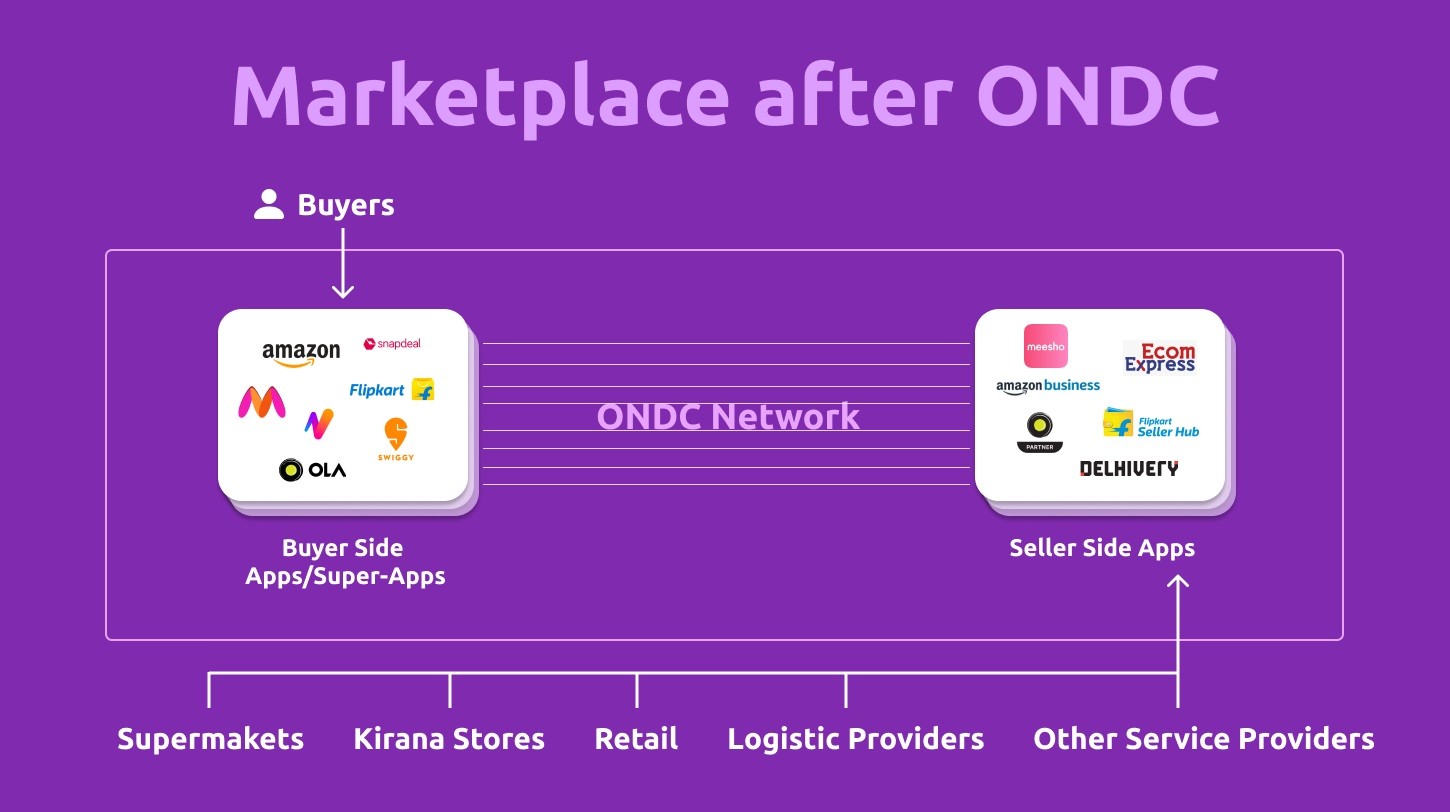



So, ONDC is like turning the mall into a fair marketplace where no one, not even the owner, can cheat by using hidden information to promote their own products.
In essence, ONDC is designed to protect both consumers and businesses from the unethical practices of data-driven private labeling. By encouraging transparency, promoting fair competition, and enforcing policy compliance, it promises a healthier, more trustworthy digital commerce environment for everyone.
Want to join ONDC?
SellerSetu makes it easy! Visit our website to get started. Fill out the form below to book a demo and see how we can simplify your onboarding and help grow your business.
So, ONDC is like turning the mall into a fair marketplace where no one, not even the owner, can cheat by using hidden information to promote their own products.
In essence, ONDC is designed to protect both consumers and businesses from the unethical practices of data-driven private labeling. By encouraging transparency, promoting fair competition, and enforcing policy compliance, it promises a healthier, more trustworthy digital commerce environment for everyone.
Want to join ONDC?
SellerSetu makes it easy! Visit our website to get started. Fill out the form below to book a demo and see how we can simplify your onboarding and help grow your business.
More on ONDC…
More on ONDC…
Are You Ready To Start A Successful Journey On ONDC ?
Join the growing community of successful sellers who trust SellerSetu for their online selling needs. Start selling on the best online marketplace on ONDC. Fill out this form, and our team will reach out to you within the next 24 hours.
Are You Ready To Start A Successful Journey On ONDC ?
Join the growing community of successful sellers who trust SellerSetu for their online selling needs. Start selling on the best online marketplace on ONDC. Fill out this form, and our team will reach out to you within the next 24 hours.
Are You Ready To Start A Successful Journey On ONDC ?
Join the growing community of successful sellers who trust SellerSetu for their online selling needs. Start selling on the best online marketplace on ONDC. Fill out this form, and our team will reach out to you within the next 24 hours.



